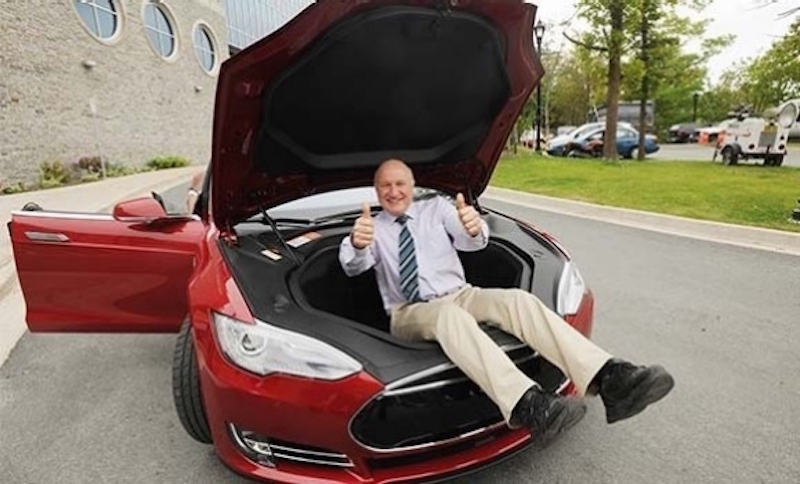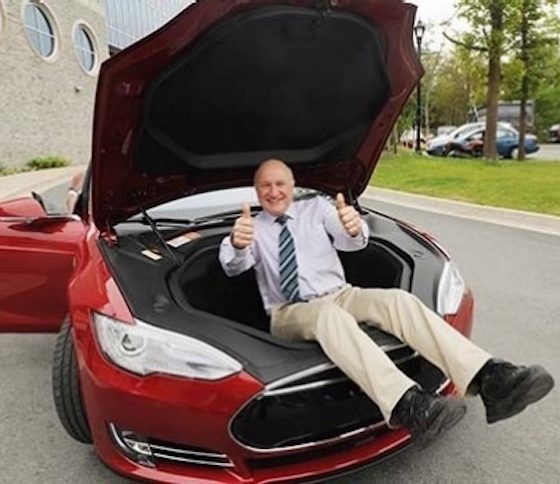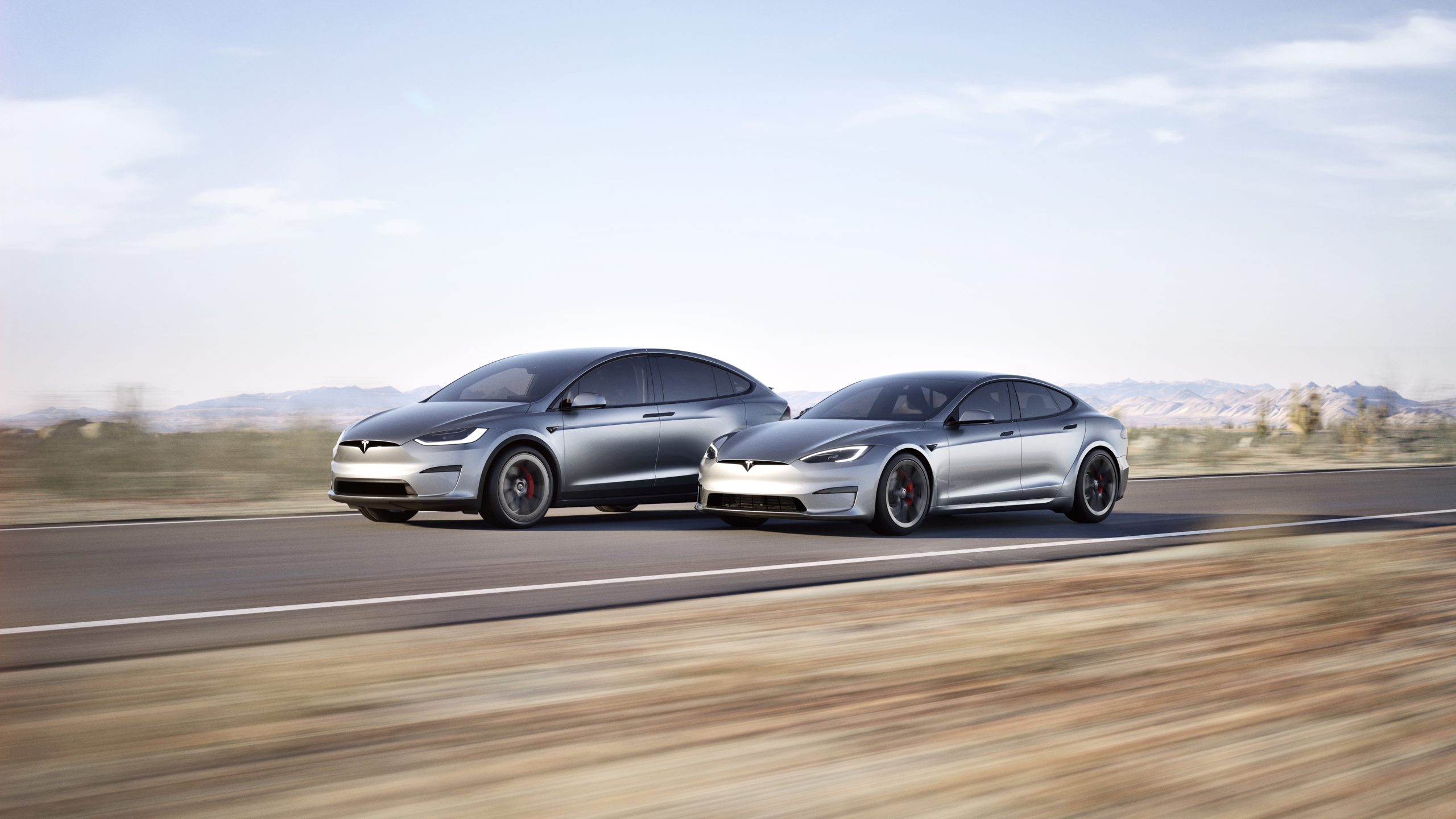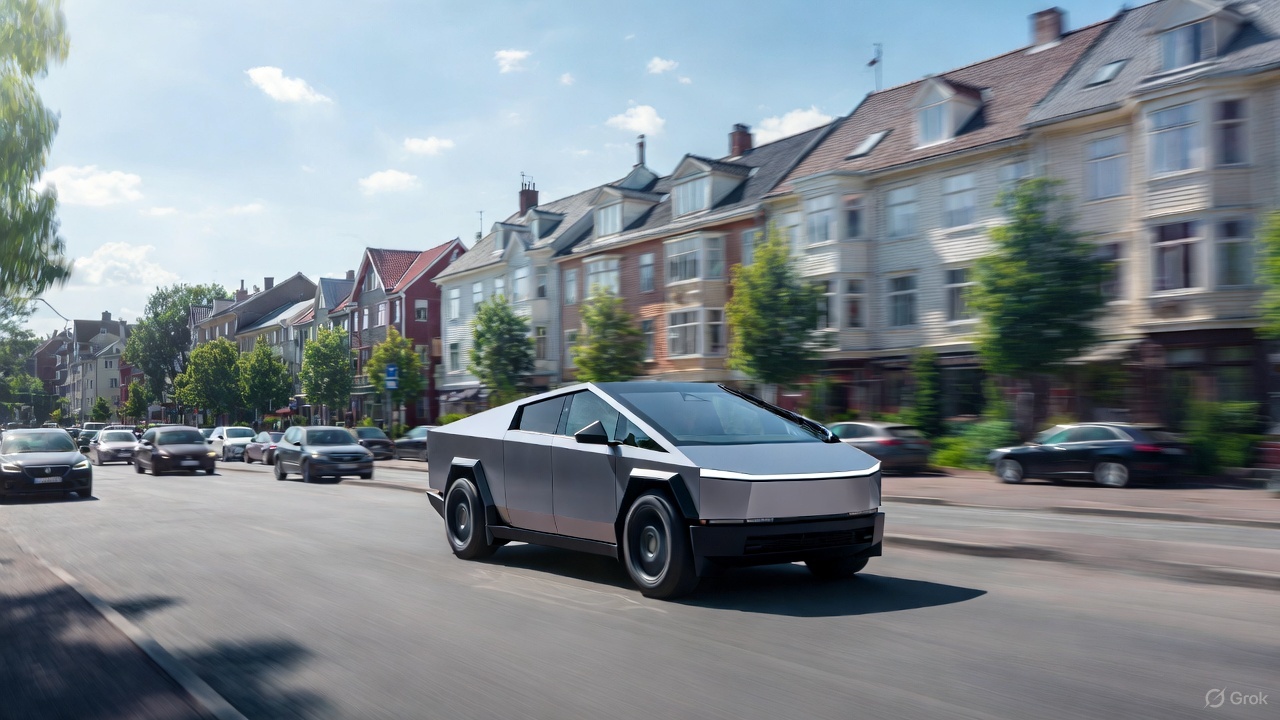

News
Tesla renews contract with Jeff Dahn’s battery team at Dalhousie University
Tesla has renewed its contract with Jeff Dahn and Dalhousie University. The partnership between Tesla and the Canadian University, which started on June 8th, 2016, held the intention of developing longer-lasting, lower-cost EV batteries.
For years, Tesla has been working with Dahn’s research team to develop new strategies for EV battery development and longevity. One of the most notable was an electrolyte solvent, which Dahn’s team submitted a patent for on behalf of Tesla in the company’s search for a 1 million mile-capable battery cell.
It appears that the partnership has been extended, based on a new announcement from the school.
On Monday, January 18th, Dalhousie University published a press release that announced the addition of two new scientists who will act as the school’s newest research chairs in the development of electric vehicle batteries and technology. Dr. Chongyin Yang and Dr. Michael Metzger, two established scientsts in the battery industry, will join Dalhousie’s exclusive partnership with Tesla to develop world-class electric vehicle batteries.
Dalhousie University detailed the addition of Dr. Yang and Dr. Metzger:
“Dr. Chongyin Yang is the Tesla Canada Research Chair and has been working on materials and devices for energy conversion and storage for 12 years. Prior to coming to Dalhousie University, Dr. Yang was an assistant research scientist in the Department of Biomolecular Engineering at the University of Maryland, where he led research projects on material and device development for high energy aqueous lithium-ion batteries.
Dr. Michael Metzger is the Herzberg-Dahn Chair and received a diploma from the Technical University of Munich (TUM), the top-ranked university in Germany and the European Union. While completing his graduate studies, Dr. Metzger developed innovative methods to study the lifetime and aging of lithium-ion batteries in close collaboration with BASF and BMW. He has also worked in the Silicon Valley tech industry as a research engineer for Robert Bosch, the largest supplier for the automotive industry.”
Dahn commented on the addition of both of the new Doctors, stating that he was extremely pleased with the announcement and looks forward to the contributions they will make. “Our goal is to continue to help Tesla develop better advanced batteries for its products. Dr. Yang and Dr. Metzger bring new ideas, new methods, and new expertise as well as a full commitment to electric transportation and renewable energy to the partnership,” Dahn said.
Tesla battery researcher Jeff Dahn’s tests hint at li-ion cells breaking the 2M-mile barrier
Additionally, Dalhousie announced that their partnership with Tesla has been extended until at least 2026.
“The initial research agreement between Dalhousie University and Tesla was signed in June 2015. This collaboration is a first between the leading American electric vehicle company and a Canadian university. Work officially began with Tesla in 2016, and the partnership has been renewed until at least 2026.”
Tesla also commented on Yang and Metzger’s new roles, which will help the company in their pursuit of longer lasting and more powerful EV battery cells. ”
“We are thrilled to be extending and expanding our work with Dalhousie and Jeff Dahn with the addition of Chongyin and Michael. We look forward to their important contributions in battery technology to help achieve our mission,” the automaker said.
H/t: Electrek

News
Tesla Model S and X customization options begin to thin as their closure nears
Tesla’s Online Design Studio for both vehicles now shows the first color option to be listed as “Sold Out,” as Lunar Silver is officially no longer available for the Model S or Model X. This color is exclusive to these cars and not available on the Model S or Model X.

Tesla Model S and Model X customization options are beginning to thin for the first time as the closure of the two “sentimental” vehicles nears.
We are officially seeing the first options disappear as Tesla begins to work toward ending production of the two cars and the options that are available to those vehicles specifically.
Tesla’s Online Design Studio for both vehicles now shows the first color option to be listed as “Sold Out,” as Lunar Silver is officially no longer available for the Model S or Model X. This color is exclusive to these cars and not available on the Model S or Model X.
🚨 Tesla Model S and Model X availability is thinning, as Tesla has officially shown that the Lunar Silver color option on both vehicles is officially sold out
To be fair, Frost Blue is still available so no need to freak out pic.twitter.com/YnwsDbsFOv
— TESLARATI (@Teslarati) February 25, 2026
Tesla is making way for the Optimus humanoid robot project at the Fremont Factory, where the Model S and Model X are produced. The two cars are low-volume models and do not contribute more than a few percent to Tesla’s yearly delivery figures.
With CEO Elon Musk confirming that the Model S and Model X would officially be phased out at the end of the quarter, some of the options are being thinned out.
This is an expected move considering Tesla’s plans for the two vehicles, as it will make for an easier process of transitioning that portion of the Fremont plant to cater to Optimus manufacturing. Additionally, this is likely one of the least popular colors, and Tesla is choosing to only keep around what it is seeing routine demand for.
During the Q4 Earnings Call in January, Musk confirmed the end of the Model S and Model X:
“It is time to bring the Model S and Model X programs to an end with an honorable discharge. It is time to bring the S/X programs to an end. It’s part of our overall shift to an autonomous future.”
Fremont will now build one million Optimus units per year as production is ramped.
News
Tesla Cybertruck Dual Motor AWD estimated delivery slips to early fall 2026
Tesla has also added a note on the Cybertruck design page stating that the vehicle’s price will increase after February 28.

Tesla’s estimated delivery window for new Cybertruck Dual Motor All-Wheel Drive (AWD) orders in the United States has shifted to September–October 2026. This suggests that the vehicle’s sub-$60,000 variant is now effectively sold out until then.
The updated timeline was highlighted in a post on X by Tesla watcher Sawyer Merritt, who noted that the estimated delivery window had moved from June 2026 to September-October 2026, “presumably due to strong demand.”
The Dual Motor AWD currently starts at $59,990 before incentives. Tesla has also added a note on the Cybertruck design page stating that the vehicle’s price will increase after February 28.
If demand remains steady, the combination of a later delivery window and a pending price increase suggests Tesla is seeing sustained interest in the newly-introduced Cybertruck configuration. This was highlighted by Elon Musk on X, when he noted that the Cybertruck Dual Motor AWD’s introductory price will only be available for a limited time.
When the Cybertruck was first unveiled in November 2019, Tesla listed the Dual Motor AWD variant at $49,990. Adjusted for inflation, that figure equates to roughly $63,000 in 2026 dollars, based on cumulative U.S. inflation since 2019.
That context makes a potential post-February price in the $64,000 to $65,000 range less surprising, especially as material, labor, and manufacturing costs have shifted significantly over the past several years.
While Tesla has not announced a specific new MSRP, the updated delivery timeline and pricing note together suggest that the Cybertruck Dual Motor AWD could very well be the variant that takes the all-electric full-sized pickup truck to more widespread adoption.
Elon Musk
SpaceX targets 150Mbps per user for upgraded Starlink Direct-to-Cell
If achieved, the 150Mbps goal would represent a significant jump from the current performance of Starlink Direct-to-Cell.

SpaceX is targeting peak download speeds of 150Mbps per user for its next-generation Direct-to-Cell Starlink service. The update was shared by SpaceX Spectrum & Regulatory Affairs Lead Udrivolf Pica during the International Telecommunication Union’s Space Connect conference.
“We are aiming at peak speeds of 150Mbps per user,” Pica said during the conference. “So something incredible if you think about the link budgets from space to the mobile phone.”
If achieved, the 150Mbps goal would represent a significant jump from the current performance of Starlink Direct-to-Cell.
Today, SpaceX’s cellular Starlink service, offered in partnership with T-Mobile under the T-Satellite brand, provides speeds of roughly 4Mbps per user. The service is designed primarily for texts, low-resolution video calls, and select apps in locations that traditionally have no cellular service.
By comparison, Ookla data shows median 5G download speeds of approximately 309Mbps for T-Mobile and 172Mbps for AT&T in the United States, as noted in a PCMag report. While 150Mbps would still trail the fastest terrestrial 5G networks, it would place satellite-to-phone broadband much closer to conventional carrier performance, even in remote areas.
Pica indicated that the upgraded system would support “video, voice, and data services, clearly,” moving beyond emergency connectivity and basic messaging use cases.
To reach that target, SpaceX plans to upgrade its existing Starlink Direct-to-Cell satellites and add significant new capacity. The company recently acquired access to radio spectrum from EchoStar, which Pica described as key to expanding throughput.
“More spectrum means a bigger pipeline, and this means that we can expand what we can do with partners. We can expand the quality of service. And again, we can do cellular broadband basically, cellular broadband use cases, like AI or daily connectivity needs,” he stated.
SpaceX has also requested regulatory approval to deploy 15,000 additional Direct-to-Cell satellites, beyond the roughly 650 currently supporting the system. The upgraded architecture is expected to begin rolling out in late 2027.








